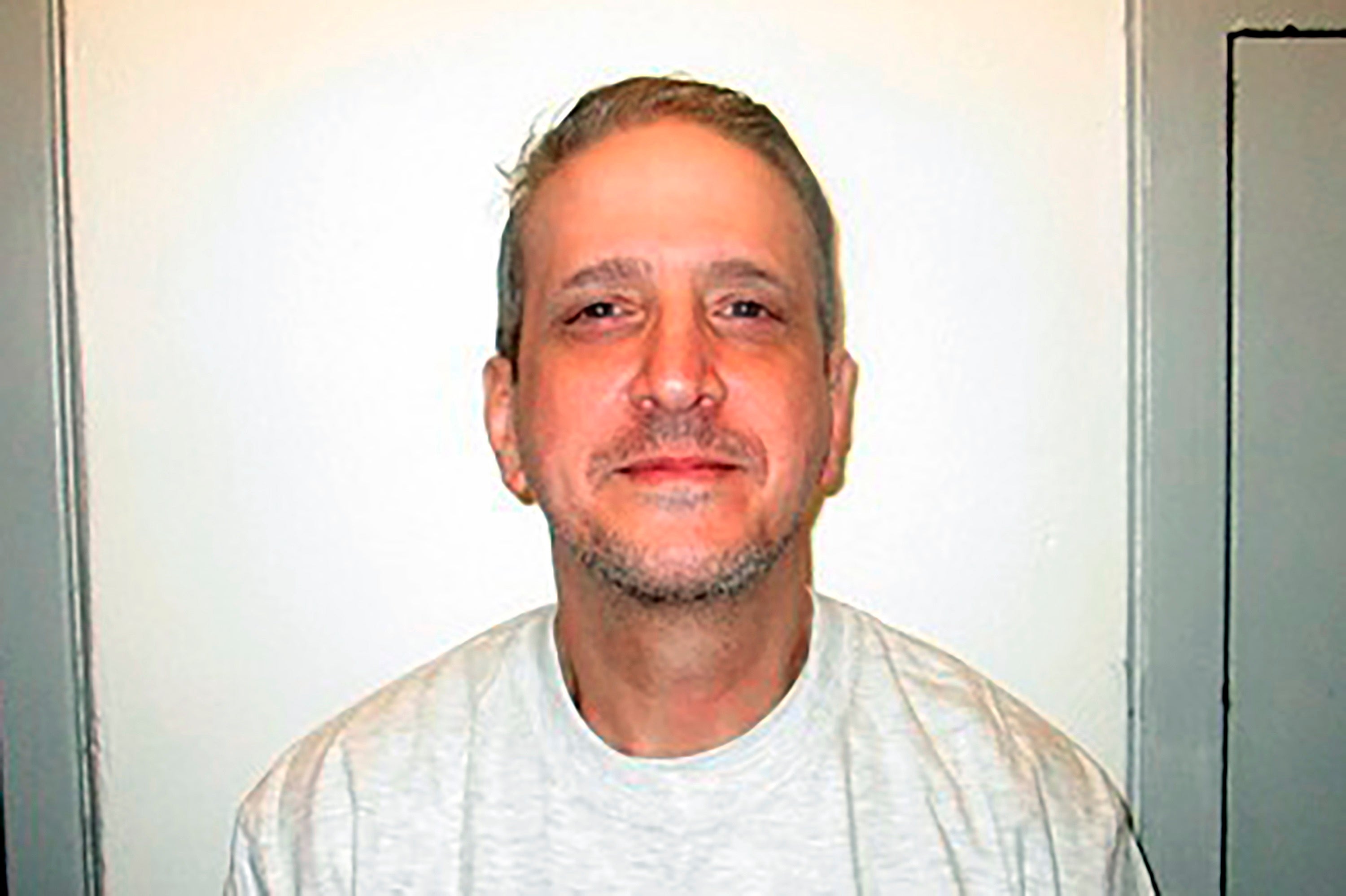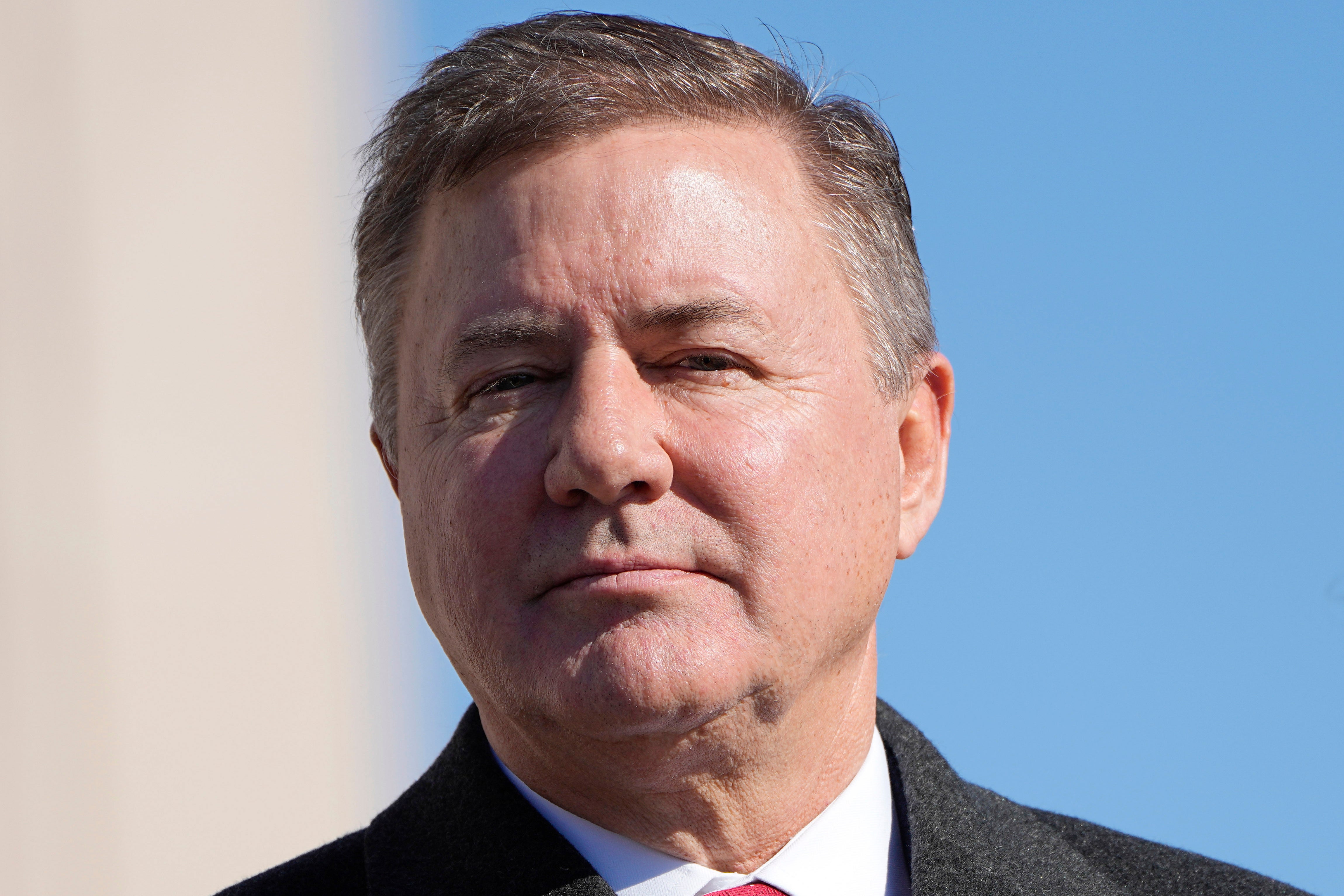An Oklahoma death row case is going to the Supreme Court - even though the state agrees he shouldn’t be killed
Oklahoma death row inmate Richard Glossip’s appeal has the backing of the state’s Attorney General
After 25 years on death row, nine scheduled executions and three “last meals”, Oklahoma inmate Richard Glossip will finally have his wrongful conviction claim heard by the US Supreme Court.
In a long-running legal battle that has pit Oklahoma’s Attorney General Gentner Drummond against the state’s legal establishment, Glossip’s appeal for a new trial will be taken up by the Supreme Court in the fall, according to a decision released on Monday.
Glossip’s latest scheduled execution in May 2023 was stayed by the Court after Mr Drummond made a stunning disclosure: Oklahoma had reached “the difficult decision to confess error and support vacating the conviction of Richard Glossip”.
But after Oklahoma’s highest court declined to throw out the execution last year, and the state parole board was deadlocked on whether to intervene, the Supreme Court was the sole remaining legal avenue open to the condemned man.
Glossip, 60, was sentenced to death in 1997 for the murder of his boss, Barry Van Treese, in a room at the Best Budget Inn in Oklahoma City, which Glossip managed.
The state’s star witness was Justin Sneed, a drug-addled drifter with a lengthy rap sheet who admitted beating Van Treese to death with a baseball bat. Sneed, then 19, was offered immunity from the death penalty in return for his testimony.

Glossip’s first murder trial in 1998 was plagued with prosecutorial misconduct, and “a cascade of errors and missed opportunities by defence attorneys”, according to a 343-page report commissioned by state lawmakers in 2022.
The report stated there was no physical or witness evidence tying Glossip to the killing other than Sneed’s testimony.
Investigations found Sneed had offered conflicting versions of the murder, and interview transcripts suggest detectives had planted the $10,000 murder-for-hire scheme in his head during a coercive police interrogation.
The 2022 report by law firm Reed Smith found that prosecutors had destroyed or lost key evidence before a 2004 retrial and deprived defence lawyers of using DNA testing to prove Glossip’s innocence.
The “deficient” police investigation suffered from tunnel vision, while prosecutors failed to properly vet evidence and used the tainted confession “to fit its flawed narrative”, the report stated.
“Our conclusion is that no reasonable juror, hearing the complete record, and the uncovered facts ... would have convicted Richard Glossip of capital murder,” Reed Smith attorney Stan Perry said last year.
A separate report from former Oklahoma state lawmaker Rex Duncan released last April stated that prosecutors had failed to inform the defence about Sneed’s diagnosis of bipolar affective disorder, a potential violation of several Supreme Court rulings.
In a brief statement after the Supreme Court opted to take the appeal, Mr Drummond said: “Public confidence in the death penalty requires the highest standard of reliability, so it is appropriate that the U.S. Supreme Court will review the Glossip case.”
Glossip’s lawyer Don Knight told CNN on Monday that his client was heartened that the case would be reviewed.
“While much of the prosecutorial legal establishment in Oklahoma is simply backing this conviction blindly, Gentner Drummond has very bravely stepped forward, sees where the injustice was committed and has committed himself that justice is done for Richard Glossip.”

In 2015, Glossip had been hours from execution when Oklahoma State Penitentiary officials discovered they had received the wrong execution drugs, which in part led to a seven year pause in executions in the state.
The court later ruled 5-4 against him in a case that the drugs could be legally used in lethal executions.
He had been set to face execution last May when the Supreme Court ordered the case be stayed.
Despite lingering doubts about the case, an Oklahoma appeals court upheld Glossip’s conviction last year and the state’s pardon and parole board were split 2-2 in a vote to grant him clemency. That meant the Supreme Court was his only remaining legal avene.
Glossip’s case will likely be taken up in October when the Supreme Court’s next term begins. His stay of execution will remain in effect until the case is resolved.
The Supreme Court has also asked to hear arguments on a decision in April to uphold the conviction by the Oklahoma Court of Criminal Appeals.
Justice Neil Gorsuch will recuse himself from the case probably due to his involvement in an earlier case involving Glossip when he was on the 10th US Circuit Court of Appeals.
Glossip’s case has received the backing from anti-capital punishment advocacy groups, a bipartisan coalition of state lawmakers and celebrities such as Kim Kardashian and Susan Sarandon.
Death penalty opponent Sister Helen Prejean has served as Glossip’s spiritual adviser and frequently visits him in prison.
His case was featured in the 2017 documentary film “Killing Richard Glossip.”
Bookmark popover
Removed from bookmarks